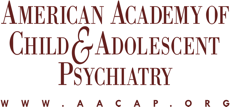Implicitly, ethical considerations ought to underlie all clinical interventions, patient-doctor interactions, and intra-professional relationships. American Council of Graduate Medical Education (ACGME) regulations stipulate the teaching of ethics in child and adolescent psychiatry (CAP) training programs, in order to make the existence of these considerations clear and explicit as well as to ensure learning about ethical dilemmas common to medical and child and adolescent psychiatric practice. This latter “overt” curriculum likely covers subjects that include, for example, confidentiality, civil commitment, informed assent/consent, and boundaries. By contrast, the “covert” or “hidden” ethics curriculum is rarely addressed by training programs, formally or informally. This Clinical Case Conference intends to focus directly on the hidden curriculum, which promotes acceptable, in contrast to ethical, professional behavior, as it might apply to child and adolescent psychiatry training programs.
Sunday, October 31, 2010: 8:00 AM-11:00 AM
Chair:
Co-presenters:
Sponsored by the AACAP
Sponsored by the AACAP
Ethics Committee
